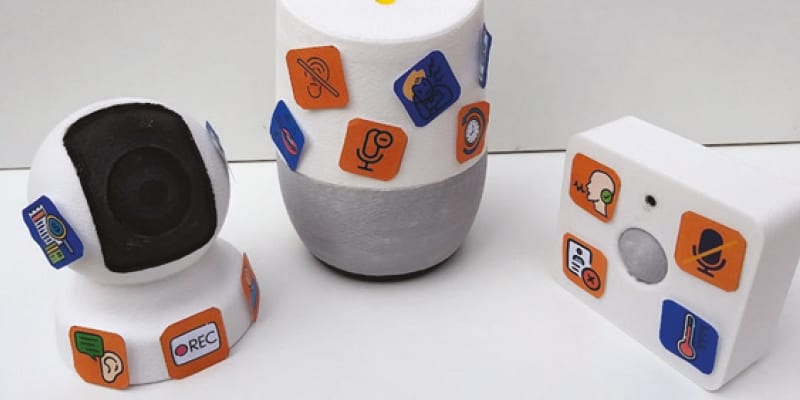This article is based on work from the CHAI academic research project, which explores how individuals can best recognise and protect themselves against potential security risks posed by AI-enabled smart technologies in the home. It is a three-year EPSRC-funded project involving five UK universities in collaboration with Housing Technology.
Benefits vs. risks of AI technologies
AI-enabled smart technologies, such as voice assistants, smart locks and smart thermostats, are becoming more common in our homes because they can make many aspects of our domestic lives easier. There has been increasing interest in introducing these technologies within the social housing sector given the opportunities they offer housing providers to increase efficiencies and improve safety across their properties at the same time as providing benefits to tenants such as savings on energy bills.
However, these technologies also come with new risks, both known and unknown, and there’s currently limited regulation around many of these smart devices. Of particular concern is the fact that they can make us more vulnerable to cybercriminals looking to cause harm through stealing our data or seizing control of the devices.
Given our limited experience using and living with these smart technologies, it can be difficult for individuals to imagine and assess what these risks would be, and to then make a decision about whether the benefits outweigh the risks in their particular context. For example, a smart device enabling an elderly person to continue living independently in their own home could be seen as a greater benefit than simply having the convenience of being able to switch on your heating on your way home from work.
Wider societal implications
Emerging technologies, such as AI-enabled smart technologies designed for home use, can introduce a range of social, political and technical implications that have the potential to affect people and wider society in significant, extensive and often unpredictable ways.
To understand these complex issues within our research, we use ‘speculative design’. A speculative design approach asks “what if…” questions to raise critical issues about the design and use of technology in the future. Speculative design therefore helps us as technology designers to recognise the implications of our decisions in advance and to develop technologies that will increase the chance of a more desirable future.
The questions posed during speculative design can be explored by not only the design team, but also through involving future users of the technology in creative design workshops. In particular, speculative design methods seek to understand participants’ experiences, needs and worries. During the workshops, a tangible prototype is often presented to help participants imagine what the future involving this new technology might be like and to prompt them to think through the various issues in a critical way.
This prototype can be in the form of, for example, technology props/models, stories/videos/comics illustrating use of the technology, advertising campaigns, device packaging or social media posts/product reviews about the technology.
In CHAI, we use physical 3D-printed props of existing smart technologies. Our participants are given the creative task of ‘configuring’ this technology using stickers with relevant real and imagined functionality and placing it within their home. Following a week’s engagement with the props, we carry out a reflective discussion in small groups of three or four tenants. We discuss specific experiences as they relate to the benefits and risks they anticipated while they had the technology prop in their homes.
Including diverse voices
Academic research exploring the societal implications of smart home technologies has typically involved younger users who are also digitally literate. Young people’s views and concerns are important to understand, but this group is only partly representative of social housing tenants. With an increasingly aging population, residents of social housing have tended to be older as compared to the private-rented sector. Looking beyond the issue of age as a single factor, there’s also a recognition that technology can affect people in different ways based on an interplay of factors such as age, gender, disability/health status or family circumstances.
For example, consider the hacking of smart technology that detects residents’ activity to regulate heating; the consequences will be experienced differently if the resident has young children compared to a resident living alone with a disability.
At CHAI, we are recruiting people from a variety of backgrounds (older people, parents, retirees and people at work). Following our participants’ week-long engagement with the technology props, we carry out a reflective discussion in small groups. During these discussions, our facilitators prompt participants to reflect on the benefits and risks discussed in relation to their life characteristics in order to capture the interplay of factors.
The University College London team is actively looking for research partnerships with tenants, housing associations and technology providers. To learn more about our research plans and to get involved, please get in touch with us via l.benton@ucl.ac.uk.
Dr Laura Benton & Professor Mina Vasalou are from the UCL Knowledge Lab.


